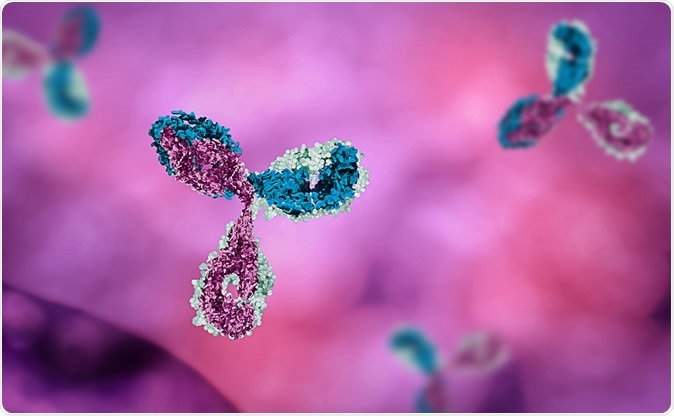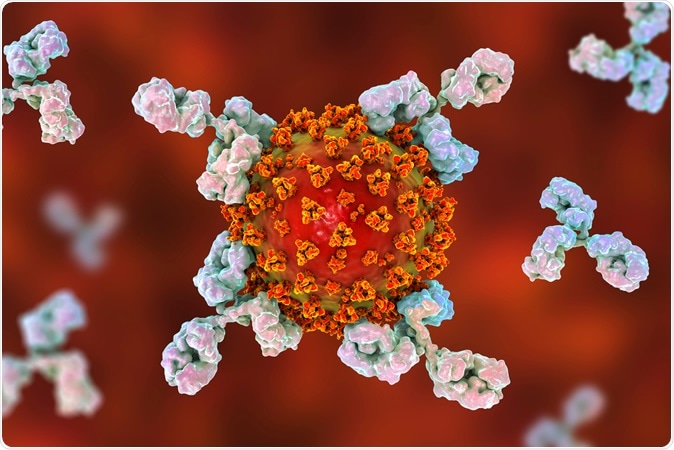The coronavirus disease (COVID-19) currently has no treatment or vaccine, leaving countries grappling with the wrath of the infectious disease. Caused by the novel coronavirus, now called the severe acute respiratory syndrome coronavirus 2 (SARS-CoV-2), the viral infection has killed more than 257,000 people and infected at least 3.66 million. Scientists across the globe are racing to develop vaccines and therapies to combat the infection.
Israel has been one of the most active countries in battling COVID-19, and has been successful in "flattening the curve." The country has announced dozens of medical studies and technologies they are developing to contain the spread of the virus and treat those who are critically ill.
Now, in a significant medical breakthrough, Israel's Institute for Biological Research Institute (IIBRI) has wrapped up the development of a potential treatment for the coronavirus disease. The scientists say they have identified an antibody that neutralizes SARS-CoV-2 in vitro or outside of a living organism.
Identifying an antibody against SARS-CoV-2
Israel's Defense Minister Naftali Bennett said he witnessed a significant breakthrough accomplished by the IIBR in moving towards an antibody against the dreaded virus. The team had already completed the developmental phase and is now preparing for the mass-production of the potential treatment after obtaining a patent for the discovery.
Bennett visited the laboratories of the IIBR, a secretive unit that works under the auspices of the office of the Prime Minister. The team shows how the antibody can attack the virus in a monoclonal way and can neutralize it.
Monoclonal antibodies are laboratory-produced molecules engineered to serve as substitute antibodies that can restore, enhance, or mimic the immune system's attack on cancer cells. They are designed to bind to antigens that are generally more numerous on the surface of cancer cells than healthy cells.

Antibody illustration: Image Credit: Mirror-Images / Shutterstock
Statement from the Israel Ministry of Defense
3 key parameters:
- The antibody is monoclonal, new and refined, and contains an exceptionally low proportion of harmful proteins
- The antibody is able to neutralize the coronavirus
- The antibody was specifically tested on the aggressive coronavirus
"Based on comprehensive scientific publications from around the globe, it appears that the IIBR is the first institution to achieve a scientific breakthrough that meets all three aforementioned parameters simultaneously," Bennett said in a statement.
The IIBR has been leading Israel's efforts to develop a vaccine and treatment for the novel coronavirus, including testing of blood from those who have already recovered. Antibodies in the samples taken from recovered patients are now being studied for their potential as a possible cure for COVID-19. Antibodies are immune system proteins that are residues of the body's successful fight against a pathogen.

Antibodies attacking SARS-CoV-2 virus, the conceptual 3D illustration for COVID-19 treatment. Image Credit: Kateryna Kon / Shutterstock
The breakthrough is a significant step in the fight against COVID-19 because the scientists developed it from a single recovered cell, hence, the term monoclonal antibody. This means that the antibody is more potent in developing an effective treatment. To compare, the antibodies that have been extracted across the globe are all polyclonal.
Promising milestone
IIBR is now working to patent its antibody discovery, possibly landing a contract for its commercial development. If the antibody continues to show promise as a cure for the coronavirus disease, it will make a significant impact across the affected countries, particularly the hardest-hit countries in Europe.
"This is an important milestone, which will be followed by a series of complex tests and a process of regulatory approvals. That said, the scientists at the institute believe that the nature of this breakthrough could lead to a shortening of the process, which could span over several months," Bennett added.
The IIBR has not only developed the antibody against the novel coronavirus, but it was also involved in collecting plasma from recovered patients in an attempt to aid in research. It has also taken part in the progress of developing a vaccine, along with MigVax, an affiliate of the MIGAL Galilee Research Institute. The scientists have reported being close to completing the first phase of developing a potent coronavirus vaccine.
The institute is working tirelessly to find a cure for the novel coronavirus, which has infected more than 16,000 in the country and has killed at least 238.
The IIBR and the town of Yeoham plan to open the country's first vaccine production facility. They will team up with two international pharmaceutical companies and present the plan for the quick establishment of the facility if the Israeli government provides approval.
The coronavirus global pandemic has now affected more than 187 countries and territories. North American and Europe reported the highest number of infections. The high infection rate of the pathogen is driving scientists to race in developing effective vaccines and treatments for the infection. Now, the United States has the highest number of infections, topping 1.2 million confirmed cases and more than 71,000 fatalities.